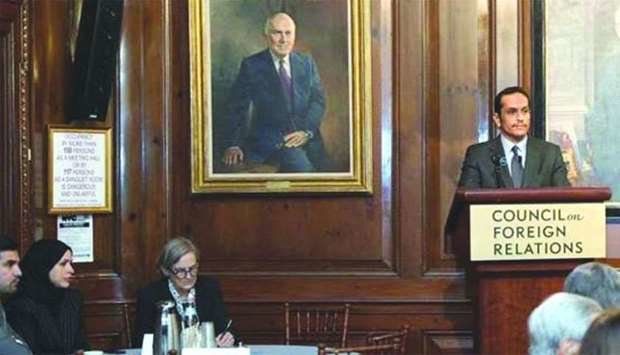Fragile alliance in the Persian Gulf Cooperation Council

Qatari Energy Minister Saad al-Kaabi announced a few days ago that Qatar intended to leave the Organization of the Petroleum Exporting Countries (OPEC) starting from January 1, 2019. This news has fomented worldwide reactions.
However, Qatari officials said the decision was quite technical and was divorced from political analysis. But it is clear that Qatar’s withdrawal from OPEC in the wake of the continuing Doha crisis with the Arab states of the Persian Gulf and the allegations of Qatar's possible withdrawal from the Gulf Cooperation Council strongly suggests that Doha's goals and motivations are more than just “technical”.
The Deputy Prime Minister of Foreign Affairs Sheikh Mohamed bin Abdulrahman al-Thani, delivering a speech at a meeting of the Council on Foreign Relations in New York on Friday, said that what is happening in the Gulf Cooperation Council is unfortunate because it has been one of the most stable organizations in the Middle East. When the Qatar blockade began, perceptions of the PGCC Council changed and it became clear that this council had become ineffective.
He added: “I do not want to be pessimistic, but I do not believe that the Persian Gulf Cooperation Council can play its role again in the future. We hope that this council will once again serve as a strong and successful organization in the Arab world, but I am not confident that we can move forward in the current situation.”
The Persian Gulf Cooperation Council has not taken any effective steps since the Persian Gulf crisis and has become an organization like OPEC in recent years. The shared aspect of both organizations is the presence of Saudi Arabia and its efforts to guide the goals and priorities of OPEC and the Gulf Cooperation Council on the basis of its own interests.
Qatari's withdrawal from OPEC has triggered a massive wave of social networks calling for similar action regarding the PGCC. If a major crisis within an organization between the Persian Gulf Arab states, such as the Qatari crisis, has failed to force the PGCC to take any action, no other incident can do so. It appears that staying in the PGCC looks like a waste of time and energy.
The notable issue is that Qatar not only does not take the position and role of the Persian Gulf Cooperation Council very seriously, but other Arab countries have also noticed the intangible presence of the organization in the international arena.
While the king of Saudi Arabia, Salman bin Abdul Aziz, invited the Qatari emir to attend a coming meeting, it is not yet known whether Qatar's Emir intends to participate. Qatar could easily be planning to exit the PGCC.
In any case, it can be predicted that the withdrawal of Qatar from the Persian Gulf Cooperation Council after leaving OPEC will prompt anger and dissatisfaction with the U.S. because the Trump administration repeatedly has aimed to solve the Persian Gulf crisis and called on the alliance of these countries against Iran. The U.S. has been attempting to create an alliance, a so-called “Arab NATO”, against Tehran's regional influence.
The U.S. did not make any move against Saudi Arabia for the killing of Jamal Khashoggi, but it did apparently set a deadline for the resolution of the matter.
The Arab countries set up the PGCC originally believing that they could achieve a cultural, political, and social unity, but eventually, like the Arab League, it became a fragile alliance due to differences in views and positions on a variety of issues.
Leave a Comment